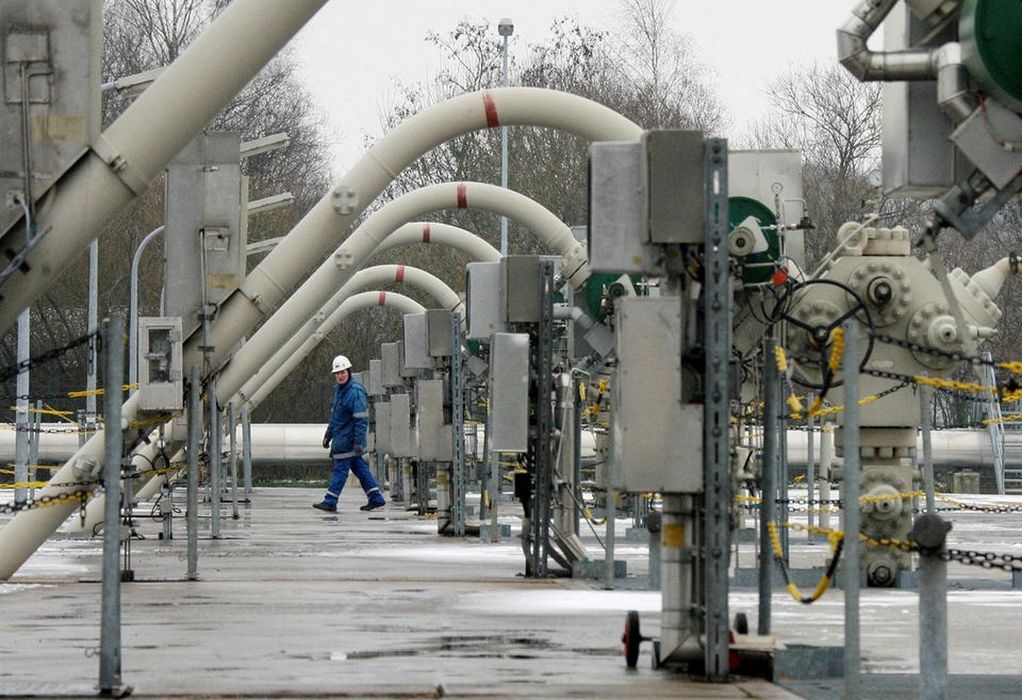The European Commission will next week propose plans to reduce Europe’s reliance on imported gas from Russia and make countries’ energy systems more resilient to supply shocks or price spikes.
The invasion of Ukraine by Russia, the European Union’s top gas supplier, has sharpened concerns over supply disruptions and increased scrutiny of countries’ reliance on imported fossil fuels.
The 27-country EU imports 90% of the gas it uses, with around 40% coming from Russia. Russian deliveries have stayed steady since the invasion, but prices have spiked on concerns EU sanctions could target Russian gas or Moscow could curb supply.
Here’s what’s in a draft of the European Commission proposal, which could change before it is due to be published next week.
Gas storage
EU gas storage should be at least 80% full by Sep. 30 this year to buffer against supply shocks next winter, the draft said.
The Commission will coordinate measures to ensure this happens. It said countries can oblige storage users to fill a minimum volume, or task transmission system operators with buying strategic gas stocks.
It is also considering proposing a legal requirement for EU countries to fill gas storage to a minimum level by Sep. 30 every year, the draft said.
EU gas storage is currently 29% full, around 8 percentage points lower than this time last year, according to Gas Infrastructure Europe data.
The Commission has said the EU could cope with a partial disruption to Russian gas supply this winter, pointing to countries’ storage and contingency plans for supply shocks.
Gas supplies
The EU is currently negotiating a raft of new climate change policies, including targets to expand renewable energy and cut energy use faster over the next decade.
The proposals would cut EU reliance on gas by 23% by 2030, the draft said, and the Commission urged EU countries and European Parliament to approve them quickly.
In the short term, Brussels wants to diversify its gas supply. Concerns about disruptions to Russian flows have led the EU to seek alternative supplies from countries including the United States, Qatar and Japan.
Europe’s liquefied natural gas (LNG) imports hit a record high of around 11 bcm in January.
The draft said the EU will discuss medium-term market developments with major gas buyers to try to avoid “conflictual market practices” that could raise prices.
It also pledged more support for green hydrogen projects and said countries should use the EU’s huge agricultural subsidies budget to fund production of biogas from waste.
Renewable energy
As the EU seeks to shift from fossil fuels to green energy, the Commission will make recommendations in June to speed up permitting for new wind and solar energy projects.
Another proposal will include measures to accelerate solar projects, including rooftop panels for houses, the draft said.
The Commission will also tell EU countries they can tax the profits energy companies made from recent gas price spikes and invest the revenue in renewable energy or support for consumers and industries hit by high electricity prices.
Governments in most of the EU’s 27 member countries are already using emergency measures like tax breaks and subsidies to shield households from higher energy bills, which have jumped in recent months amid soaring gas prices.
Source: Reuters
Tags: Europre, Gas Storage, LNG, Renewable Energy, Russian Gas

Recent Posts
GCMD completes biofuel supply chain trials with Hapag-Lloyd
Airbus partners with Avolon on hydrogen aviation
Nuclear power transition more safe option for decarbonisation than coal
ABS presents industry’s first advisory on ammonia bunkering
AW Shipping orders multiple dual-fuel vessels from China
HIF Global partners with Airbus to advance development of SAF
ASL Aviation signs agreement with ZeroAvia for retrofit
AM Green plans to invest $1 bn to set up 2G biofuel plants